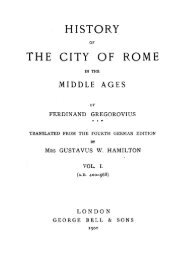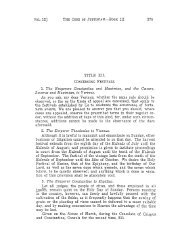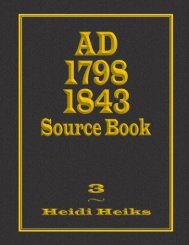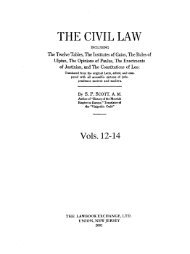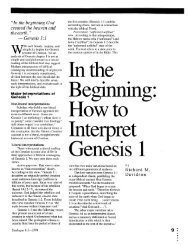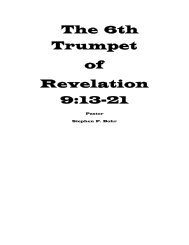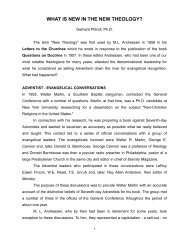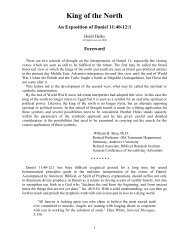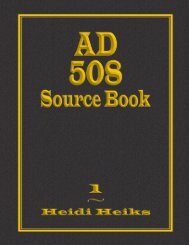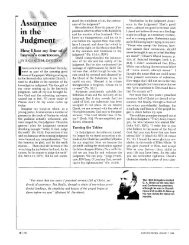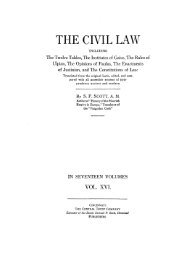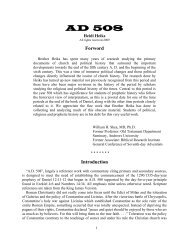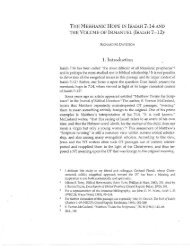You also want an ePaper? Increase the reach of your titles
YUMPU automatically turns print PDFs into web optimized ePapers that Google loves.
<strong>Judgment</strong> <strong>in</strong> <strong>Daniel</strong> 7tions is appropriate for the <strong>in</strong>sights this k<strong>in</strong>d ofliterary form will provide.Our analysis will start then with a literal translation ofthe passages.<strong>Daniel</strong> 7:9-10Parallelism VerbalTheme Verse Translation and Meter· Forms··I kept look<strong>in</strong>g ext pt + pfA:.9a Until thrones were set synt,3:3 pfand One ancient of days sat;pfB:9b His garment (was) white like snow,and the hair of His head (was) puresyn,3:4 existlike wool;9cc:His throne (was) flames offire,Its wheels (were) burn<strong>in</strong>g fire.syn,3:3 existe':lOa A stream offire precededsyn,3:3ptand went forth before it;ptB':lOb A thousand thousands served Him,syn,3:4impften thousand ten thousands stoodimpfbefore Him;A:lOe The judgment sat,synt,2:2pfand books were opened.pf·Ext =extrametrical; synt =synthetic; syn =synonymous.•·Pt =participle; pf =perfect; exist =existential; impf =imperfect.The beautiful balance of this powerful description of theophany <strong>in</strong>judgment is readily apparent. The six bicola (or couplets) employed <strong>in</strong> thisdescription are thematically related <strong>in</strong> the same chiastic pattern ofA:B:C::C':B':~ that we found previously <strong>in</strong> apocalyptic. This is evident from themeter, from the types of parallelism employed, and from their thematicand lexical relations.A + X. The use ofthe plural "thrones" <strong>in</strong> verse 9a has raised the questionamong commentators about who was to sit on them. A study of thepoetic relations <strong>in</strong> the chiasm <strong>in</strong>dicates that the angelic host ofverse lObis described <strong>in</strong> verse tOe as sitt<strong>in</strong>g on them. This expla<strong>in</strong>s why a s<strong>in</strong>gularnoun andverbwere used <strong>in</strong> verse 1Oc-"thejudgmentsat." Why did <strong>Daniel</strong>not say that those <strong>in</strong> attendance at the judgment sat down? The answer isthat to have done so would have required a plural subject and verb. Thiswould have destroyed the correspondence of the phrase ("the judgment116



